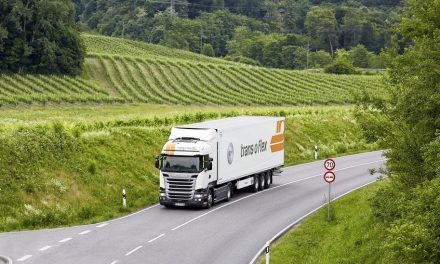
trans-o-flex switches completely to eco-power
The trans-o-flex logistics group is the first operator of a full-coverage distribution network in Germany to switch its electricity supply completely to eco-power. The additional costs for eco-power amount to a five-figure Euro sum per year.
The decision is part of a sustainability strategy the company has been following for some years. In this connection, trans-o-flex compiled a complete CO2 statement for 2007 for the first time to identify where what quantities of the climate-change gas are being produced or caused. Changing to electricity from renewable sources alone will improve the Group’s CO2 record by between 4 and 5 pct.
The trans-o-flex logistics group is the first operator of a full-coverage distribution network in Germany to switch its electricity supply completely to eco-power. “Considering our focus on the pharmaceutical and health industries, trans-o-flex bears a special responsibility towards the environment,” according to Wolfgang Weber, Head of Operations at trans-o-flex. “That’s why we have decided only to use electric power from renewable sources such as solar, water and wind at all our locations and thereby reduce our CO2 emissions by 100 pct in comparison with conventional electricity.” The additional costs for eco-power amount to a five-figure Euro sum per year.
The decision is part of a sustainability strategy the company has been following for some years. In this connection, trans-o-flex compiled a complete CO2 statement for 2007 for the first time to identify where what quantities of the climate-change gas are being produced or caused. Changing to electricity from renewable sources alone will improve the Group’s CO2 record by between 4 and 5 pct.
“All our processes are up for examination from the aspect of environmental compatibility,” continues Weber. “This year, we’re going to reduce our CO2 output by a total of about 10,000 tons.” Some examples of the various sustainability initiatives at trans-o-flex are: limiting top speed to 120 km/h voluntarily by installing speed restrictors; choosing ecological building materials, such as wood instead of steel for roof construction; using geothermic energy for heating and cooling sorting centres; using forklifts with three-phase asynchronous motors, which recirculate braking energy, saving every third charging phase and consequently up to a third of normal energy consumption; switching from conventional coolants to water in air conditioners; using natural gas-powered delivery vehicles which by comparison with diesel vehicles emit 25 pct less CO2 and practically no particulates or nitrogen oxides at all; ensuring that all diesel vehicles in the fleet are equipped with particulate filters and at least meet the Euro 4 emissions criteria. No diesel-powered delivery vans with a better emissions profile are yet available. In line-haul traffic, some two thirds of the tractor units already fulfil Euro 5.












